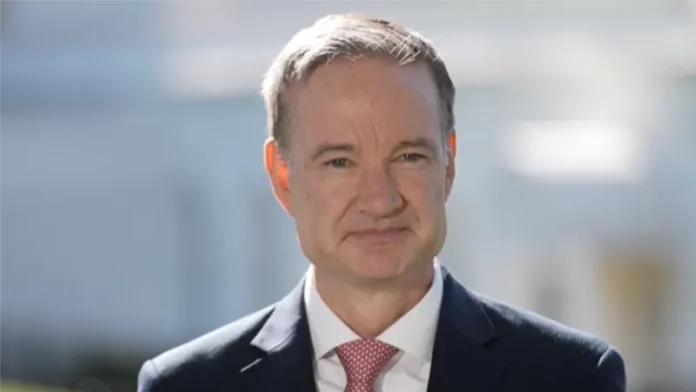THE WHITE HOUSE — Less than a day after U.S. President Joe Biden granted Ukraine authorization to strike inside Russia with American weaponry, Michael Carpenter, senior director for Europe at the National Security Council, spoke with VOA’s Iuliia Iarmolenko to discuss details of the new policy and explain what prompted the president’s reversal of a longstanding ban.
In an exclusive interview, Carpenter emphasized that the U.S. policies barring Ukraine from using American-provided ATACMS, or long-range missiles, and other munitions to strike offensively inside Russia have not changed. He also provided insight into the specifics of the new policy and its potential impact on the ongoing conflict between Ukraine and Russia.
The following interview has been edited for length and clarity.
VOA: Could you provide details about this shift in policy? What is allowed and what are the limitations?
MICHAEL CARPENTER, SENIOR DIRECTOR FOR EUROPE AT NATIONAL SECURITY COUNCIL: This policy shift comes in response to the recent Russian offensive in the Kharkiv region against Ukraine. The Russians were striking targets in Ukraine from just across the border, causing harm to innocent civilians and their homes. At this point, the Ukrainian government approached us with a request to use U.S.-provided weapons to defend themselves against these attacks. After careful consideration, President Biden directed his national security team to change the guidance and allow for the use of American weapons to strike back. This new guidance has now gone into effect.
VOA: Does this policy only apply to the Kharkiv region?
CARPENTER: This policy applies to counter-fire capabilities that are deployed just across the border. It does not apply to ATACMS or long-range strikes. The intention is to enable the Ukrainians to defend themselves against Russian attacks coming from just across the border, where the Russians would otherwise have a relative sanctuary.
VOA: What is the hope of the administration regarding how this policy shift might influence Ukraine’s position on the battlefield?
CARPENTER: Our goal has always been to provide Ukraine with the necessary defensive capabilities to push back against the aggressive actions of Russia. This policy change is a step towards achieving that goal. We will continue to support Ukraine in any way we can.
VOA: Do you expect this change in policy to give Ukraine an upper hand in the coming months?
CARPENTER: Our aim is to provide Ukraine with the capabilities to defend its sovereignty against Russian aggression. The types of weapons systems and capabilities we provide have evolved over time, as the battlefield has changed. We have also worked closely with our allies and partners to increase our contributions. We will continue to do so.
VOA: Defense Secretary Austin recently mentioned that the U.S. is in talks with European allies to provide Ukraine with additional air-defense capabilities. Can you provide any updates on this?
CARPENTER: We are currently exploring all options to provide Ukraine with the necessary air defense capabilities. We are in discussions with our allies and partners around the world. While I cannot make any announcements at this time, I can assure you that we are working tirelessly to support Ukraine’s defense needs.
VOA: The upcoming July NATO summit in Washington has been a topic of discussion. Secretary of State Antony Blinken has mentioned that there will be “very strong deliverables for Ukraine” at the summit. Can you provide any insight into what those deliverables might look like? Will Ukraine receive an invitation to start accession talks?
CARPENTER: Secretary Blinken is currently in Prague discussing the nature of the support that will be provided to Ukraine following the summit. We anticipate that the support will be robust and will serve as a bridge towards NATO membership. While there is currently no consensus for an invitation at the Washington summit, we are working towards building Ukraine’s capabilities and ensuring they are fully prepared to join the alliance when the time comes.
VOA: President Biden is meeting with Belgian Prime Minister Alexander De Croo today. Can you speak to the role Belgium will play in using Russian frozen assets to benefit Ukraine?
CARPENTER: Belgium is a strong NATO ally and a member of the EU. They have played a crucial role in supporting Ukraine. President Biden will use this meeting to underscore our partnership and discuss how we can use the proceeds from immobilized Russian sovereign assets to support Ukraine.
VOA: It has been reported that President Biden may not attend the upcoming Ukraine peace summit in Switzerland. Can you comment on this?
CARPENTER: While I cannot

